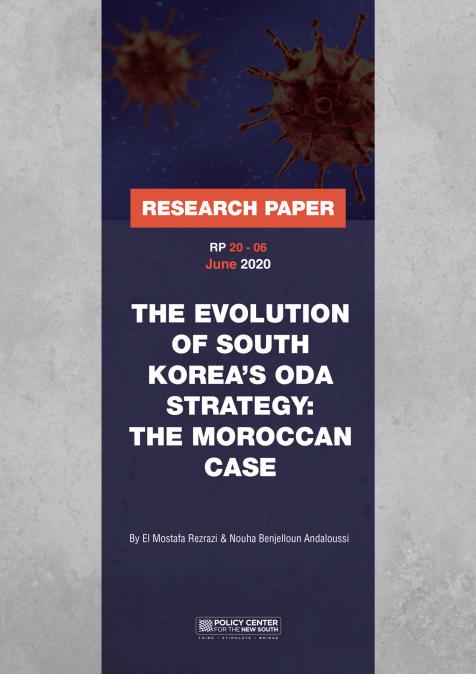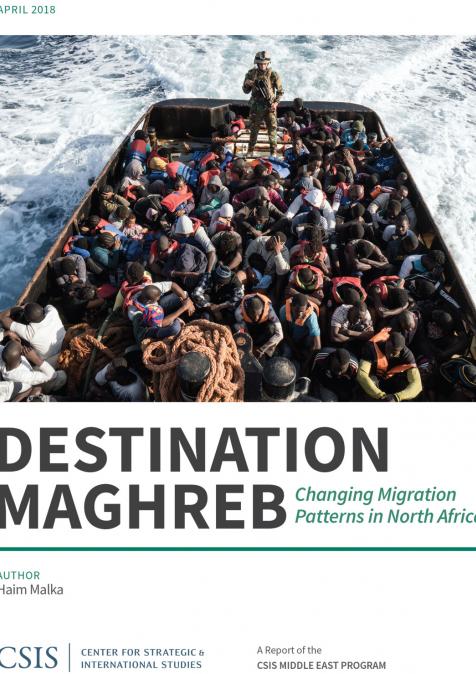Publications /
Opinion
There has been a flurry of activity in the Horn of Africa recently, where decades-old political disputes have suddenly been put to rest. The resulting changes have shattered the status quo in the region, putting the Horn on a new path where state-to-state relations are no longer marked by regional competition and frozen borders. While this has undoubtedly been a positive development for the region, one big piece of the puzzle has been the role of external actors in the process, and the degree to which the developments are organic or externally imposed.
The winds of change began with the selection of Ethiopian Prime Minister Ahmed Abiy, who took over when Hailemariam Desalegn announced his resignation amidst mounting protests against his government earlier this year. In his inauguration speech in early April, Abiy made it clear that he sought to resolve his country’s dispute with Eritrea, which had led to frozen relations and a militarized border since the conclusion of a war in 2000. In the ensuing months, a rapid series of high-level visits between the leadership of both nations resulted in the restoration of relations, Ethiopia’s commitment to implement the Algiers Agreement which ended the war, and Eritrea’s agreement to work with Ethiopia going forward. This was symbolized on September 11 2018, when the border was officially re-opened during local New Year celebrations, allowing the flow of people and goods for the first time in over two decades.
Yet, the geo-political changes in the Horn have not stopped there. Eritrea also had a similar tense relation with another one of its neighbors in Djibouti, also centering around a border dispute in the Dumeria area. The international sanctions imposed on Eritrea for the past decade derive in part from its actions vis-à-vis Djibouti.
Clashes in 2008 led to mediation under the auspices of Qatar, which deployed a peacekeeping mission. However, with the onset of the Gulf Cooperation Council (GCC) crisis in mid-2017, and the decision by both Eritrea and Djibouti to align themselves on the side of Saudi Arabia/UAE, Qatar abruptly ended its involvement, withdrawing its peacekeepers. This left the border vulnerable to future conflict, with reports that the Eritrean military had moved into to fill the vacuum, only to later retreat.
A key dynamic resulting from the Ethiopia-Eritrea rapprochement, has been the impact within the wider region. Just as Ethiopia led the charge behind Eritrea’s isolation since 2000, paving the way for the sanctions imposed in 2009, Ethiopia is now leading the way behind Eritrea’s regional re-integration.
Somalia, under President Farmajo, was the first in the region to heed the call, visiting Asmara in late July, and calling for the lifting of the sanctions. President Kiir of South Sudan followed suit, stopping by Asmara in August.
Nevertheless, for all the positive vibes in the region, Djibouti held out, given its tense history with Eritrea. That makes for the normalization of relations between the two, following a joint visit by the Foreign Ministers of Somalia, Ethiopia and Eritrea to Djibouti on 6 September 2018, and a summit between Isaias Afewerki and Omar Gulleh in Saudi Arabia on 17 September 2018, all the more surprising. Yet it is a sign of the fast paced developments occurring in the Horn, where deeply entrenched animosity is being washed away seemingly overnight.
In many ways, these dynamics are locally-driven, precipitated by leadership change in Ethiopia, which was committed to both addressing the Eritrea issue, but also to not carrying the historical baggage of previous Ethiopian administrations. A key sign of this is the fact that Ethiopia had been looking to adjust its Eritrea policy even prior to Abiy’s assumption of power. Ex-Prime Minister Desalegn announced to Parliament in April 2017 that a new policy was upcoming. Domestic events likely took precedence, placing any true changes on hold. But it was essentially an admission that Ethiopia’s policy to isolate Eritrea had started to fade after initial success, and failed to produce any actual changes to the status quo. Furthermore, Eritrea’s engagements with the Saudi Arabia/UAE coalition in the war against the Houthis in Yemen, the onset of mining revenue, and even its engagement with the European Union over migration, all indicated that the Ethiopia’s plan to isolate Eritrea were slowly being undermined by outside forces.
Nonetheless, the support of external actors in assisting Ethiopia’s rapprochement with Eritrea has been evident. Afewerki and Abiy met together in July in Abu Dhabi for a tripartite summit, and then signed a second peace accord in Jeddah, Saudi Arabia in September. That preceded the Afwerki-Gulleh meeting in Saudi Arabia, during which Gulleh praised Saudi Arabia for bringing the two sides together.
Nations in the Horn have clearly been content with giving the Saudi Arabia and UAE bloc significant credit, given the summits based in the Gulf and the frequent visits between top leadership. In many ways, Saudi Arabia and the UAE are serving as external backers of the deals, underpinned by economic agreements that are not always in the public record. For example, the UAE has started talking about building an oil pipeline between Eritrea and Ethiopia, while the country has also provided three billion dollars in investment and loans to shore up Ethiopia’s economy under Abiy. Given its familiarity with the Eritrean port of Assab, future agreements to resurrect that port to supply landlocked Ethiopia’s 100 million population and its growing economic is only natural. Saudi Arabia has already agreed to provide Ethiopia with one-year’s worth of oil imports with delayed payment – to ease fuel shortages in the country and avoid placing too much pressure on the country’s chronic foreign currency shortage. In this sense, there are clear economic benefits underpinning the Saudi-UAE involvement, with an eye for more advantages in the future.
It is also important to point to the increasingly prominent role of the Gulf, in the absence of more traditional power structures in the Horn of Africa. While the United States was a crucial actor in the negotiations behind the fluttering Algiers Agreement, the African Union has played virtually no role in the resolution of key conflict dynamics within the Horn, despite being based in Addis Ababa. The same can be said for the Intergovernmental Authority on Development (IGAD), the regional organization tasked with addressing peace and security issues in the Horn. The fact that some of the important summits were even held outside the Horn and in the Gulf, underlines the dynamic of this newfound influence on Horn politics.
Thus, the Saudi-UAE alliance in the Horn has done what Qatar could not do, especially with regards to its failed mediation between Eritrea and Djibouti. It’s a strong symbol that the Horn region has gravitated towards this side in the GCC dispute (a key exception being Somalia itself, where the government on Mogadishu has officially chosen to stay neutral, but seen as closely allied to Qatar). As a result, it is clear that Saudi-UAE influence in the region has only expanded since the onset of the GCC crisis, even at the expense of Qatar. While, initially, the pressure for countries to join sides in the Horn diminished the possibility that the exportation of the GCC crisis could result in a decrease in insecurity, the newfound alliance and ascension of a partner with a new vision for the region in Ethiopia, has led to a new status quo – one in which Saudi Arabia and the UAE are seen as peacemakers, while Qatar’s influence is gradually reduced.
By consequence, there has been a dramatic partnership between the Saudi/UAE camp and the newfound status quo in the Horn, that has resulted in positive developments. The changes in the Horn are undoubtedly preceded by local calculations and leadership change in Ethiopia, but it still begs the question of whether this much could’ve been achieved this quickly without the support of the Horn’s newfound Gulf allies. Given the rate of activity, the constant meetings between Gulf and Horn leaders, and the hosting of peace summits on the other side of the Red Sea, it appears unlikely, cementing the role of the Middle East in the Horn of Africa even further.








